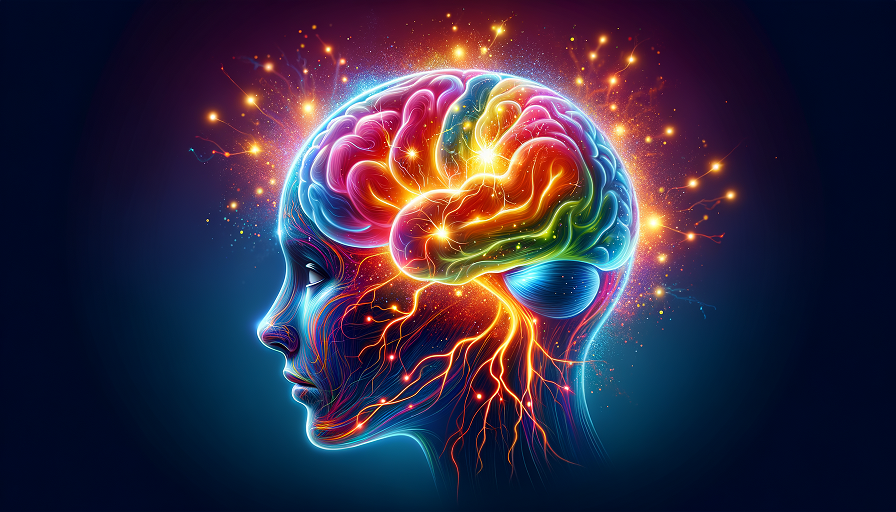Your brain is a high-performance machine—fast, complex, and always “on.” But to function properly, it needs fuel. That fuel doesn’t just come from food; it comes from efficient energy metabolism and balanced neurotransmitter production, both of which depend on a group of nutrients often overlooked in cognitive health: the B vitamins.
Specifically, vitamin B6 (pyridoxine), B9 (folate), and B12 (cobalamin) play critical roles in supporting brain energy and the synthesis of neurotransmitters like dopamine, serotonin, and GABA. When these nutrients are in short supply—or not optimally functioning—the brain can experience fatigue, low mood, and foggy thinking.
Here we look at how these three B vitamins power your brain at the cellular level, support chemical messengers that control cognition and mood, and why they’re key components in advanced nootropic formulas like Mind Lab Pro.
The Brain’s Energy Demands
Your brain consumes about 20% of your body’s total energy—more than any other organ. It uses this energy to maintain electrical activity, process sensory input, consolidate memory, regulate emotions, and keep you alert and responsive. But this energy isn’t stored in the brain—it must be constantly produced through a cellular process called mitochondrial respiration.
B vitamins—especially B6, B9, and B12—are essential cofactors in this process. They help convert food into ATP (adenosine triphosphate), the primary energy currency used by neurons to function, communicate, and adapt.
1. Vitamin B6: The Neurotransmitter Coenzyme
Vitamin B6 (pyridoxal-5′-phosphate, or P-5-P) plays a direct role in the creation of key neurotransmitters, including:
- Dopamine – motivation and reward
- Serotonin – mood and emotional stability
- GABA – relaxation and stress response
- Norepinephrine – focus and attention
B6 acts as a coenzyme in the enzymatic reactions that transform amino acids into these vital chemical messengers. Without enough B6, your brain may struggle to maintain proper mood regulation, focus, and stress resilience.
It also supports the conversion of stored glycogen into glucose—helping provide an immediate energy supply for neurons during high-demand periods like exams, meetings, or intense problem-solving sessions.
2. Vitamin B9: The Methylation Manager
Vitamin B9, also known as folate (specifically in its active form, L-methylfolate), is crucial for methylation—a process that turns genes on and off, repairs DNA, and supports detoxification. In the brain, methylation is especially important for the production of:
- Myelin – the protective sheath around neurons
- S-adenosylmethionine (SAMe) – a compound essential for serotonin and dopamine synthesis
Folate also contributes to homocysteine regulation. Elevated homocysteine—a common consequence of low B9 levels—is associated with cognitive decline, memory problems, and age-related neurological issues. Adequate folate helps keep homocysteine levels in check and supports long-term brain health.
3. Vitamin B12: The Neural Protector
Vitamin B12 (methylcobalamin) is another key player in methylation, DNA synthesis, and red blood cell formation. It works closely with folate in the homocysteine cycle, and also contributes to:
- Maintaining healthy myelin for fast signal transmission
- Producing neurotransmitters and mood-regulating chemicals
- Generating cellular energy (ATP) via mitochondrial function
Low B12 levels have been linked to brain fog, fatigue, memory lapses, and even structural brain atrophy in older adults. Even marginal deficiencies can impact cognitive performance and mood regulation, especially in high-demand situations.
The Interconnected Role of B6, B9, and B12
These three B vitamins don’t work in isolation—they’re part of an interconnected system that supports:
- Neurotransmitter synthesis (dopamine, serotonin, GABA)
- Methylation cycles for mood, memory, and detoxification
- Energy production at the cellular level
- Homocysteine metabolism for long-term brain health
Because of their synergy, supplementing all three together can have a more powerful effect on mental clarity, cognitive energy, and emotional balance than supplementing any one of them alone.
Scientific Support
Numerous studies support the cognitive and neurological benefits of B6, B9, and B12:
- One study found that a B-vitamin trio significantly slowed brain shrinkage in older adults with mild cognitive impairment—especially in those with high homocysteine levels.
- Other research has shown improvements in memory, mood, and processing speed with B-vitamin supplementation, particularly in stressed or aging populations.
- Deficiencies in these vitamins are strongly correlated with fatigue, anxiety, depression, and reduced attention span.
Why B Vitamins Are in Mind Lab Pro
Mind Lab Pro includes three key B vitamins in their most bioavailable, active forms:
- Vitamin B6 as P-5-P (pyridoxal-5′-phosphate)
- Vitamin B9 as L-methylfolate
- Vitamin B12 as methylcobalamin
This ensures optimal absorption and use in the brain, even for individuals with genetic variations (like MTHFR mutations) that reduce folate metabolism. These B vitamins work synergistically with other ingredients like Citicoline, NALT, and Rhodiola to provide clean, sustained cognitive energy and emotional resilience.
Who Might Benefit Most?
- Students and professionals under high mental load
- Older adults looking to preserve cognitive vitality
- Vegetarians or vegans (who may be low in B12)
- Anyone with fatigue, brain fog, or low motivation
When to Expect Results
Improvements in mental energy and clarity may be noticeable within a few days to two weeks, depending on current nutrient status. Longer-term benefits—such as improved memory and mood stability—tend to build with regular use and optimized dietary intake.
Brain energy and neurotransmitter balance are non-negotiable for mental performance. Vitamins B6, B9, and B12 provide the biochemical foundation for staying focused, energized, and emotionally balanced—especially in demanding or stressful situations.
Their inclusion in Mind Lab Pro reflects their importance not just for short-term performance, but for long-term brain health and resilience. Whether you’re studying for exams, working long hours, or simply trying to think more clearly—these three B vitamins can help your brain fire on all cylinders.

